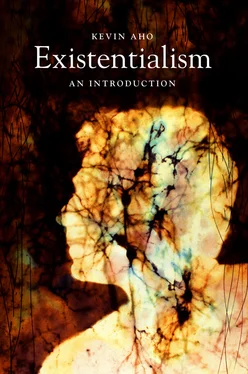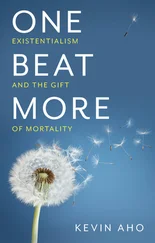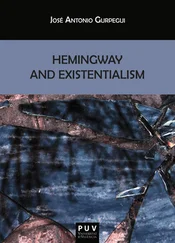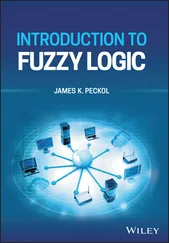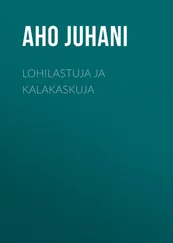Kevin Aho - Existentialism - An Introduction
Здесь есть возможность читать онлайн «Kevin Aho - Existentialism - An Introduction» весь текст электронной книги совершенно бесплатно (целиком полную версию без сокращений). В некоторых случаях можно слушать аудио, скачать через торрент в формате fb2 и присутствует краткое содержание. Год выпуска: 2013, ISBN: 2013, Издательство: Polity, Жанр: Философия, на английском языке. Описание произведения, (предисловие) а так же отзывы посетителей доступны на портале библиотеки ЛибКат.
- Название:Existentialism: An Introduction
- Автор:
- Издательство:Polity
- Жанр:
- Год:2013
- ISBN:978-0745651422
- Рейтинг книги:3 / 5. Голосов: 1
-
Избранное:Добавить в избранное
- Отзывы:
-
Ваша оценка:
- 60
- 1
- 2
- 3
- 4
- 5
Existentialism: An Introduction: краткое содержание, описание и аннотация
Предлагаем к чтению аннотацию, описание, краткое содержание или предисловие (зависит от того, что написал сам автор книги «Existentialism: An Introduction»). Если вы не нашли необходимую информацию о книге — напишите в комментариях, мы постараемся отыскать её.
Existentialism: An Introduction
Existentialism: An Introduction — читать онлайн бесплатно полную книгу (весь текст) целиком
Ниже представлен текст книги, разбитый по страницам. Система сохранения места последней прочитанной страницы, позволяет с удобством читать онлайн бесплатно книгу «Existentialism: An Introduction», без необходимости каждый раз заново искать на чём Вы остановились. Поставьте закладку, и сможете в любой момент перейти на страницу, на которой закончили чтение.
Интервал:
Закладка:
But, as we saw with Beauvoir's account of the ambiguity of oppression, we are often complicit in our own objectification. To interpret ourselves as biological things that can be managed and controlled with medical technology can disburden us from having to face ourselves. We are, then, often in bad faith, motivated toward ‘cowardly dependence on physicians’ in an effort to flee from who we are. Doctors, on this view, can be viewed as the new priests of the secular age to the extent that they symbolize power over the body and mastery over suffering and death. Indeed, as Irvin Yalom (1980) suggests, this power may be what motivates physicians and priests to choose their career path in the first place. He points to evidence suggesting that those who enter ‘death-related professions’ often do so because they suffer from higher levels of death anxiety, and the illusion of power that their profession provides helps to alleviate it (127). Existentialists unsettle this illusion altogether, making it clear that neither the physician nor the priest is an ‘ultimate rescuer’ and that suffering and death cannot be eradicated because they are constitutive of what it means to be human. In fact, as we saw in chapter 8, the more we deny or try to control our death anxiety, the more overwhelming it can become. Regardless of the sophistication of our medical technologies or the increasing precision of our diagnostic classifications, existentialism shows there is no escape from the frailty of the human situation. And, as Michel Foucault (1926–1984) demonstrates, the diagnostic authority of modern medicine is itself a fleeting historical construct.
Following Nietzsche's method of critical genealogy and influenced by his notion of ‘will to power,’ Foucault shows that the objectifying tendencies in modern medicine are simply a historical outgrowth of the scientific Enlightenment and its rational project of ordering knowledge by classifying living things into fixed categories (e.g., Foucault 1980, 1991, 1994). In this way, reason is able to stabilize and give order to the chaotic plurality, impermanence, and flux of life. For Foucault, this is why ‘knowledge’ is an expression of ‘power,’ because it transforms human beings into objects and regulates their behaviors and self-interpretations by placing them into ready-made categories. The idea is that power is constituted by accepted forms of knowledge or what Foucault calls ‘regimes of truth’ that we internalize and that are diffused ‘everywhere’: in our educational systems, in our workplaces and prisons, in the media, and in the healthcare complexes that we grow into. The medical establishment, for example, produces ‘knowledge/power’ in the form of professional documents and manuals like the Diagnostic and Statistical Manual of Mental Disorders (DSM) that classify different kinds of behavior and emotional states as diseases, and these classifications are then reinforced in schools, offices, factories, and prisons and dispersed in magazines, television programs, and websites. The problem is that these classifications are treated with the authority of being timeless and fixed, rather than the contingent historical constructs that they are. In the nineteenth-century American South, for instance, we should not be shocked when the Louisiana physician Samuel Cartwright discovered the new disease of “ drapetomania ” that caused “Negroes to run away” from working the fields and that could be “cured” by amputating their big toes (Aho and Aho 2008, 59). Nor should we be surprised to learn that homosexuality was removed as a mental disorder from the DSM in 1974 in the wake of the Stonewall Riots in New York City and the emergence of the Gay Liberation Movement (Kutchins and Kirk 1997, 60–61). And, in our own overstimulated, distracted, and technologically obsessed culture, we are witnessing a childhood epidemic of Attention Deficit Hyperactivity Disorder (ADHD), a condition that did not even officially exist until 1994. Today, 20 percent of all high school — aged boys in the United States have received the diagnosis (Schwartz 2013).
These examples show that scientific medicine as a ‘regime of truth’ is, like all other forms of power, historically contingent and unstable, and that the advanced technologies and disease classifications we use to objectify and discipline the body can do little to disburden us of the anguish of being human. This is where the insights of the existentialists play such an important role. By recognizing that suffering and death are not biological problems that can be categorized and ‘fixed’ but inescapable givens that must be accepted and integrated into one's life, existentialism illuminates a deeper issue for healthcare professionals. It reminds us that being healthy is not so much a matter of proper biological functioning, of prolonging life, or of living pain-free, but of confronting and working through our fundamental frailty and impermanence. As Nietzsche says, to simply stay alive “is indecent.” The call of the physician is to regard the patient as a human being, to help us face our own vulnerability and give meaning to it while we are “ still there ” (1990, 99).
It is this reenvisioning of the idea of health that stands as one of existentialism's signature contributions. It has profoundly reshaped contemporary approaches to healthcare and opened up exciting new areas of research in bioethics, narrative medicine, and medical humanities, in nursing, gerontology, and palliative care, and in medical sociology and anthropology. It is interesting to note that in speaking to a group of Swiss physicians toward the end of his career, Heidegger said this was what he had hoped for all along, that “his thinking would escape the confines of the philosopher's study and become of benefit to wider circles, in particular to a large number of suffering human beings” (Boss 1988, cited in Guignon 2006, 268).
Conclusion
The previous discussion shows that existentialism is in no way an outdated or moribund philosophy. The legacy of the movement endures in important areas of contemporary research. It is visible in the explosion of scholarship that applies the idea of being-in-the-world to current debates in cognitive science and philosophy of mind; in new accounts of selfhood and embodiment and the forms of political oppression related to gender, race, class, disability, and sexual orientation; in cutting-edge approaches to environmental philosophy and comparative thought; and in innovative applications in medicine, psychotherapy, and psychiatry. To this end, countless books and articles on existentialism continue to be published every year, professional conferences and research circles are devoted to it, and its major figures are thriving. But the urgency of existential questioning is less clear. Sixty years after the poet W. H. Auden famously referred to ‘the age of anxiety,’ there is an undeniable sense of cynicism and indifference when it comes to the ultimate questions of human existence. The early aftershocks regarding the announcement of ‘God's death’ appear to have worn off.
Interestingly, just a few years after the publication of Being and Time , Heidegger began to speak of a new cultural mood. It was no longer ‘anxiety’ that disclosed the underlying meaninglessness of the human situation but an insidious feeling of ‘boredom.’ In our blasé state, we are no longer distressed or shocked by Nietzsche's announcement, and this for Heidegger was a much more “shocking” problem (1999b, 73). To be sure, Westerners are not facing the imminent threat of nuclear annihilation or recovering from the visceral horrors of the Holocaust and two world wars. These events forced philosophers and writers of the time to confront the existential givens of absurdity, freedom, and death. Yet we work and live in a turbo-capitalist marketplace that is riddled with economic insecurity, inequality, and stress; we confront the global threat of anthropogenic climate change, unprecedented environmental devastation, and species extinction; and our inter-human relations are increasingly vacuous and impersonal, mediated by the ubiquitous presence of Facebook, Instagram, and Twitter. Out of this disjointed and absurd situation, life's ultimate questions would seem to bubble to the surface and the words of the existentialists would resonate with renewed urgency to a new generation. But today it is our indifference, our lack of urgency that is so disconcerting.
Читать дальшеИнтервал:
Закладка:
Похожие книги на «Existentialism: An Introduction»
Представляем Вашему вниманию похожие книги на «Existentialism: An Introduction» списком для выбора. Мы отобрали схожую по названию и смыслу литературу в надежде предоставить читателям больше вариантов отыскать новые, интересные, ещё непрочитанные произведения.
Обсуждение, отзывы о книге «Existentialism: An Introduction» и просто собственные мнения читателей. Оставьте ваши комментарии, напишите, что Вы думаете о произведении, его смысле или главных героях. Укажите что конкретно понравилось, а что нет, и почему Вы так считаете.
